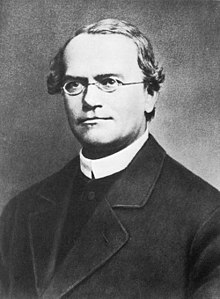In epidemiology, Mendelian randomization (commonly abbreviated to MR) is a method using measured variation in genes to examine the causal effect of an exposure on an outcome. Under key assumptions (see below), the design reduces both reverse causation and confounding, which often substantially impede or mislead the interpretation of results from epidemiological studies.[1]

The study design was first proposed in 1986 [2] and subsequently described by Gray and Wheatley[3] as a method for obtaining unbiased estimates of the effects of an assumed causal variable without conducting a traditional randomized controlled trial (the standard in epidemiology for establishing causality). These authors also coined the term Mendelian randomization.
- ^ Haycock PC, Burgess S, Wade KH, Bowden J, Relton C, Davey Smith G (April 2016). "Best (but oft-forgotten) practices: the design, analysis, and interpretation of Mendelian randomization studies". The American Journal of Clinical Nutrition. 103 (4): 965–978. doi:10.3945/ajcn.115.118216. PMC 4807699. PMID 26961927.
- ^ Cite error: The named reference
Katan1986was invoked but never defined (see the help page). - ^ Cite error: The named reference
Gray1991was invoked but never defined (see the help page).